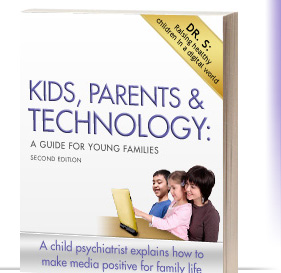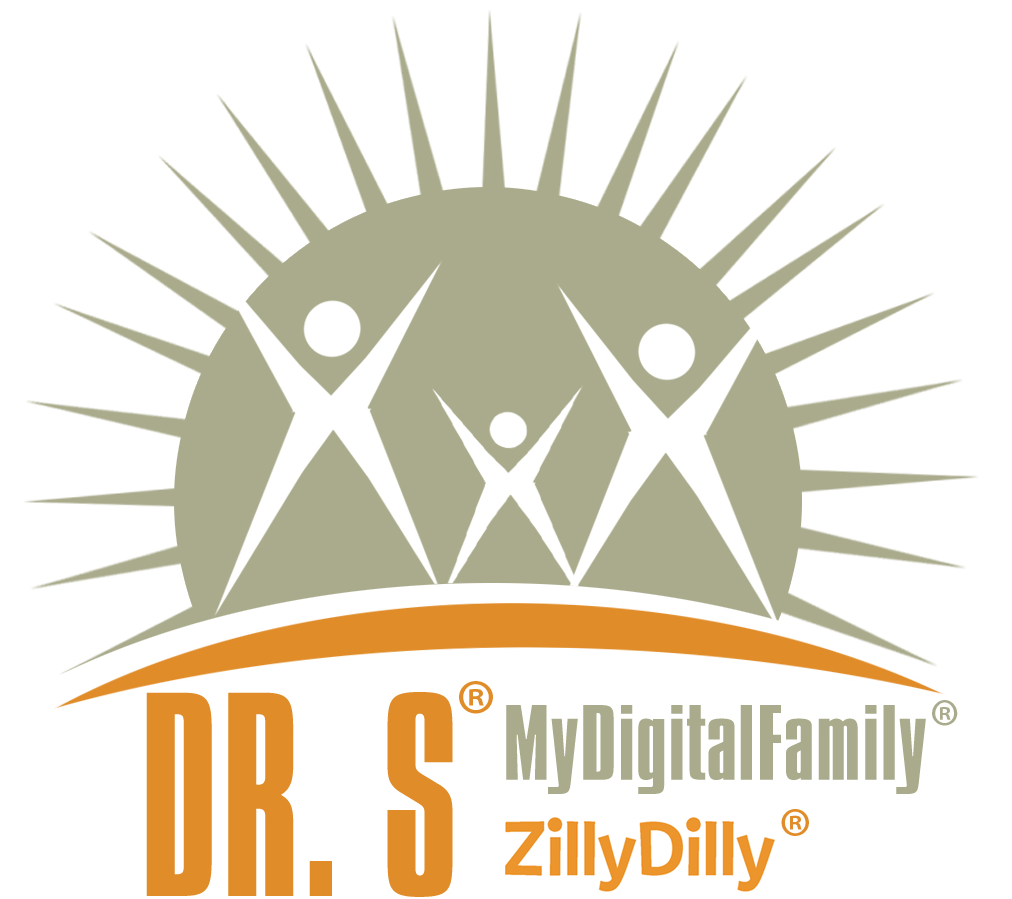“Home technology can be enormously helpful, but current studies show it to be mostly destructive,” according to Dr. Schwarz, also known as Dr. S to his patients. “For over a decade I watched and helped frustrated parents deal with kids misusing technology. I then decided it is time to give families credible tools based on a solid understanding of the needs of kids and families and wrote KIDS, PARENTS & TECHNOLOGY: A Guide for Young Families. I was then looking for ways to reach more parents more directly and started giving talks, mainly in local libraries, to motivate parents to confidently and systematically manage kids’ media lives as they do nutrition, hygiene, and education, using home Media Plans. We recorded and edited the videos to be lively and meaty. Some are now exhibited on our www.mydigitalfamily.org and are freely accessible to parents everywhere,” according to Dr. S.
“Then — out of the blue — a new idea occurred to us ‘Why not address kids directly?’ I always enjoyed working with kids in play therapy anyway. So I sat in front of the camera with a puppet, and – amazingly — the content just flowed naturally,” added Dr. S, who actually researched the use of technology in homes and in office play therapy.
In addition to parent lectures, the online site now also features spontaneously created video lessons to prepare children 2 through 10 for life with media in cooperation with parents’ Media Plans. Dr. S recommends that parents watch together with kids several times and have conversations guided by his book. One video teaches that there is a time and place for everything and parents know best. Another shows that human contact is better than media consumption.
“Some colleagues feared that the seemingly amateurish format may hurt my image as a serious expert, but I wanted the videos to be as personal, familiar, and informal as home videos. My formal expert credentials speak for themselves anyway. I’d rather connect with kids and parents in a spontaneous, non-commercial and fresh way. We are planning many more such fun thematic videos to orient youngsters towards a lifetime of healthy media use. So stay tuned,” said Dr. S, who has been on the faculty of local medical schools and a leader in his profession.



A Free Online First: Expert Teaches Parents and Kids Healthy Media Use
For the first time online, an expert is addressing both parents and their young kids directly about developing good media habits. In free side by side online videos, Dr. Eitan Schwarz, a veteran Chicago area child and family psychiatrist, urges parents to use home media in positive and healthy ways and separately addresses their young kids to cooperate. The videos attempt to change viewers’ mindset to accept Dr. Schwarz’s positive approach to the use of media in the home.
“Home technology can be enormously helpful, but current studies show it to be mostly destructive,” according to Dr. Schwarz, also known as Dr. S to his patients. “For over a decade I watched and helped frustrated parents deal with kids misusing technology. I then decided it is time to give families credible tools based on a solid understanding of the needs of kids and families and wrote KIDS, PARENTS & TECHNOLOGY: A Guide for Young Families. I was then looking for ways to reach more parents more directly and started giving talks, mainly in local libraries, to motivate parents to confidently and systematically manage kids’ media lives as they do nutrition, hygiene, and education, using home Media Plans. We recorded and edited the videos to be lively and meaty. Some are now exhibited on our www.mydigitalfamily.org and are freely accessible to parents everywhere,” according to Dr. S.
“Then — out of the blue — a new idea occurred to us ‘Why not address kids directly?’ I always enjoyed working with kids in play therapy anyway. So I sat in front of the camera with a puppet, and – amazingly — the content just flowed naturally,” added Dr. S, who actually researched the use of technology in homes and in office play therapy.
In addition to parent lectures, the online site now also features spontaneously created video lessons to prepare children 2 through 10 for life with media in cooperation with parents’ Media Plans. Dr. S recommends that parents watch together with kids several times and have conversations guided by his book. One video teaches that there is a time and place for everything and parents know best. Another shows that human contact is better than media consumption.
“Some colleagues feared that the seemingly amateurish format may hurt my image as a serious expert, but I wanted the videos to be as personal, familiar, and informal as home videos. My formal expert credentials speak for themselves anyway. I’d rather connect with kids and parents in a spontaneous, non-commercial and fresh way. We are planning many more such fun thematic videos to orient youngsters towards a lifetime of healthy media use. So stay tuned,” said Dr. S, who has been on the faculty of local medical schools and a leader in his profession.